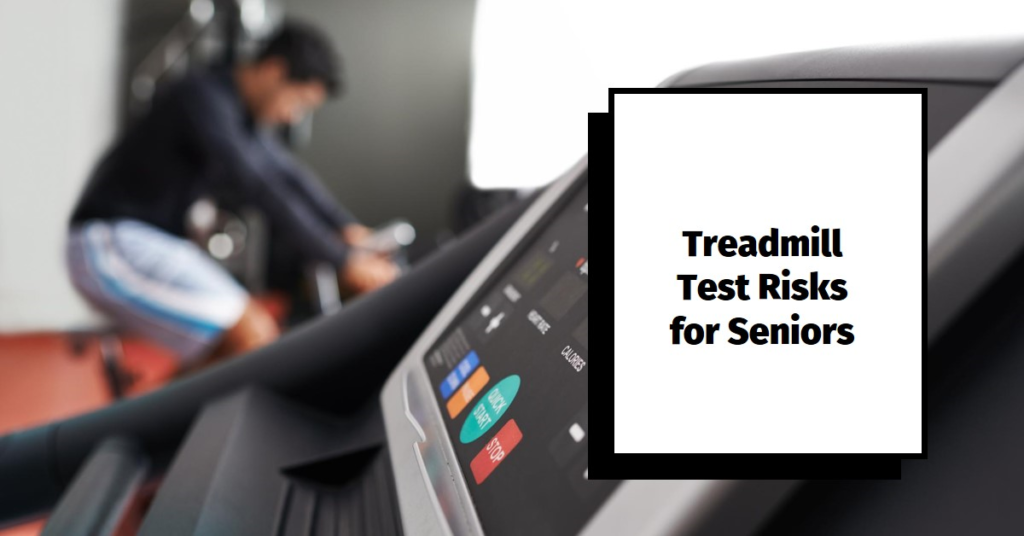As we age, maintaining cardiovascular health becomes increasingly crucial. Many seniors and individuals with chronic conditions rely on medical tests like the Treadmill Test (TMT) to assess heart function and overall fitness levels. While this test is valuable for diagnosing heart conditions and determining exercise capacity, it also comes with potential risks, especially for older adults and those with existing health issues.
What is a Treadmill Test?
A Treadmill Test, also known as a stress test, is a diagnostic tool used to evaluate how well the heart responds to exercise. During the test, the patient walks on a treadmill while their heart rate, blood pressure, and electrocardiogram (ECG) readings are monitored. The goal is to observe any abnormalities in heart function that may not be present at rest but become apparent under stress.
Benefits of Treadmill Tests for Seniors
For seniors, a Treadmill Test serves several important purposes:
- Detection of Heart Conditions: It can reveal underlying heart problems such as coronary artery disease, arrhythmias, and heart valve issues.
- Assessment of Exercise Tolerance: It helps determine the senior’s fitness level and ability to engage in physical activity.
- Guidance for Treatment: Results from the test guide healthcare professionals in developing personalized treatment plans and recommending appropriate levels of physical activity.
- Monitoring of Progress: It allows for the monitoring of changes in heart function over time, aiding in the management of chronic conditions.
Potential Risks Associated with Treadmill Tests
While generally safe, Treadmill Tests do carry some risks, particularly for seniors and those with chronic conditions:
- Cardiac Events: In rare cases, the physical exertion during the test can trigger heart-related issues such as a heart attack or severe arrhythmias.
- Fall Risk: Seniors may be at higher risk of losing balance or falling off the treadmill during the test, especially if they have mobility issues or are unfamiliar with treadmill use.
- Blood Pressure Abnormalities: The test can cause a sudden increase in blood pressure, which may be problematic for individuals with hypertension or other cardiovascular issues.
- Breathing Difficulties: Some seniors may experience shortness of breath or respiratory issues during the test, particularly if they have underlying lung conditions.
- Musculoskeletal Strain: Walking on a treadmill can strain muscles and joints, leading to discomfort or injury, especially for seniors with arthritis or joint problems.
Safety Measures and Precautions
To minimize risks during a Treadmill Test, healthcare professionals, such as those at Ecotown Diagnostics in Bangalore, ensure thorough preparation and monitoring:
- Medical Evaluation: Before the test, seniors undergo a comprehensive medical evaluation to assess their fitness for the procedure.
- Gradual Increase in Intensity: The treadmill’s speed and incline are adjusted gradually to match the senior’s fitness level, reducing sudden stress on the heart.
- Continuous Monitoring: Heart rate, blood pressure, and ECG readings are closely monitored throughout the test to detect any abnormalities promptly.
- Emergency Preparedness: Healthcare professionals are trained to handle any cardiac emergencies that may arise during the test, ensuring swift intervention if needed.
FAQs about Treadmill Tests for Seniors
1. How long does a Treadmill Test typically last?
- The test usually lasts between 10 to 15 minutes, but the duration can vary depending on the senior’s fitness level and the protocol used.
2. Are there any preparations required before a Treadmill Test?
- Seniors may be advised to avoid eating or drinking caffeine before the test and to wear comfortable clothing and shoes suitable for walking.
3. Can seniors with arthritis or joint problems undergo a Treadmill Test?
- Yes, adjustments can be made to accommodate seniors with musculoskeletal issues, ensuring they can safely complete the test without undue strain.
4. What happens if a senior experiences chest pain during the test?
- Healthcare professionals immediately stop the test and assess the situation. Emergency procedures are in place to provide appropriate care if necessary.
5. How often should seniors undergo a Treadmill Test?
- The frequency depends on their health status and recommendations from their healthcare provider. It may range from annually to more frequently in certain cases.
Conclusion
In conclusion, while Treadmill Tests offer valuable insights into cardiovascular health for seniors, it’s essential to approach them with caution due to potential risks. At Ecotown Diagnostics, seniors in Bangalore can benefit from expertly conducted TMT tests and the diligent care of healthcare professionals who prioritize safety and accuracy. As we strive to maintain heart health and overall well-being, understanding these risks and taking appropriate precautions ensures that seniors can undergo these tests safely. Are you ready to take the first step towards assessing your heart’s health?
Also know Integrating TMT Test in Corporate Wellness Programs: Benefits & Strategies.
